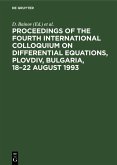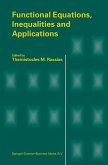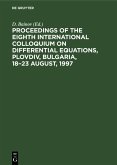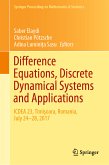Research Paper (postgraduate) from the year 2020 in the subject Mathematics - Analysis, grade: 2.2, , language: English, abstract: We show here, by a novel process, that the infinite sets of integer triples which are individually unique and which derive from Pythagoras' equation together with those from the linear Diophantine equation, x + y = z, might have convinced Fermat that he had a proof of his last theorem. Also, in the light of Wiles' proof of Fermat's conjecture we show that there are only two sets of integer triples for all Diophantine equations of integer degree. Further, it is shown that unless two or more Diophantine equations are of the same degree (not necessarily an integer) then none of the triples of one set may be found in any of the others sets.
Dieser Download kann aus rechtlichen Gründen nur mit Rechnungsadresse in A, B, BG, CY, CZ, D, DK, EW, E, FIN, F, GR, HR, H, IRL, I, LT, L, LR, M, NL, PL, P, R, S, SLO, SK ausgeliefert werden.









